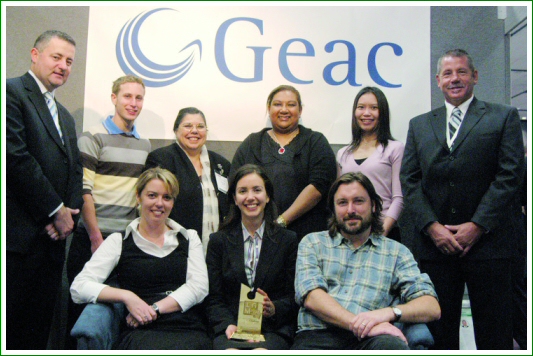The decision by Local Government Managers Australia (LGMA) to stage its 2007 National Congress and Business Expo in Hobart certainly paid off, with delegate and exhibition numbers surpassing recent years.
With the theme ‘Power to make a difference: the passion to lead’, conference organisers presented a comprehensive program of keynote speakers, concurrent sessions and workshops that was well received by delegates.
In opening this year’s congress, Tasmanian Minister Assisting the Premier on Local Government and Minister for Community Development, Michelle O’Byrne, told delegates that whether you are an elected member or Council Manager, to be successful at what you do you must be driven by a passion to continually do better.
Addressing the congress via video, Federal Minister for Local Government, Territories and Roads, Jim Lloyd, said that leadership is the key to success for any endeavour undertaken by Local Government.
“This is particularly so for regional and rural Councils, where Local Government is usually the largest industry in town so has a great influence on the prosperity of that area,” the Minister said.
He congratulated LGMA for its involvement with other peak bodies in developing the National Skills Shortage Strategy for Local Government.
With skills shortage a key issue facing many Councils, the Minister said LGMA has been a key player in the comprehensive partnership approach across Local Government to tackle this problem.
In his keynote address, titled ‘Challenge Leadership’, General Peter Cosgrove said leadership is fundamental for human relationships, whether it be in the military, school, sporting groups or government.
“Passion alone does not get the job done,” he said. “While there are some completely natural leaders, many people are looking for the tools to become better leaders.
“One’s fundamental character must be sound, but anyone can become a leader with intellect, study, energy, commitment and good communication.
“A leader can always learn from their mistakes, and often comes out of a particular role a very different leader to how they began.”
General Cosgrove said that leadership flourishes with the fundamental requirement of commitment.
“You must accept responsibility for your actions and outcomes and realise that your responsibilities are timeless,” he said. “As head of the Cyclone Larry Recovery Taskforce in 2006, I witnessed the fantastic job that Local Government, and particularly Johnstone Shire, did in coordinating Emergency Services and general recovery.
“During the cyclone, with Council offices being the emergency response headquarters, Johnstone Shire CEO, Peter Roberts, had to leave his family to cope on their own at home. Not long after the cyclone had passed, the vast majority of Council staff also returned to assist with the recovery effort. This commitment is a great example to learn from.
“True leaders need to be able to win people over to inspire them and gain their commitment.”
General Cosgrove said that the fact that Johnstone Shire staff returned to work at a time when they could have easily stayed home to deal with their own homes and problems is a clear indicator that they felt well led and demonstrated their dedication to their community.
Melbourne wins 2007 Challenge
The 15th Australasian Management Challenge sponsored by GEAC involved 127 teams from Councils across Australia and New Zealand.
After winning the Victorian title, the City of Melbourne went on to take out the Australasian title. Runner up was Wellington City Council representing New Zealand, while South Australia’s Adelaide City Council took out third place.
The other finalists were Brisbane City Council (Qld), Wagga Wagga City Council (NSW), Waratah-Wynyard Council (Tas) and Swan City Council (WA).
The Melbourne Team said that competing in the Australasian final as part of Local Government Managers Australia’s National Congress was definitely a notch up from the state/regional competition. The team agreed that the key benefits of this successful professional development program included:
- learning how to manage competing priorities
- being able to make quick decisions under pressure
- seeing the many advantages of working as a team
- understanding each other and having total trust to delegate.

















